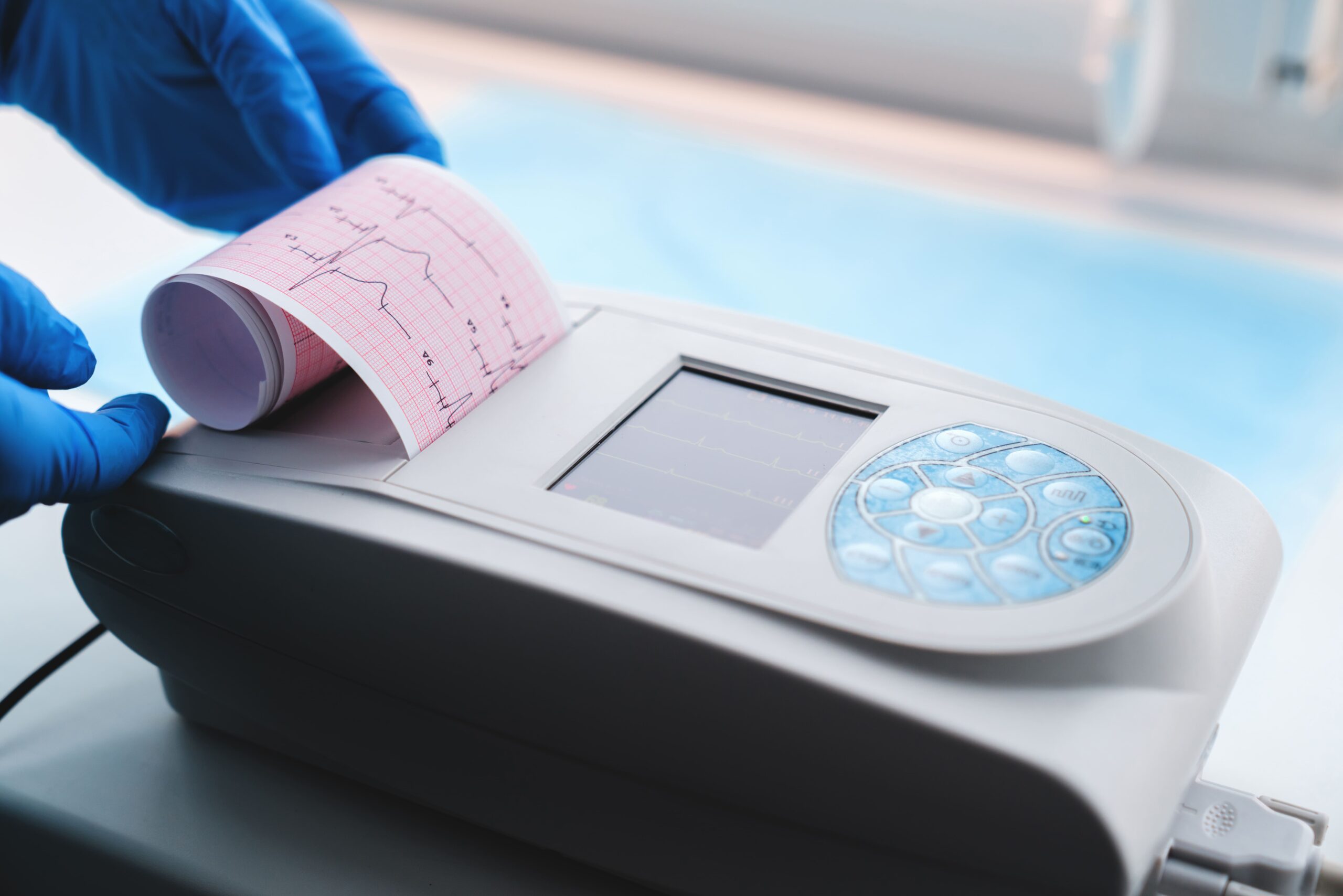An ECG is one of the most commonly performed heart tests in adults. It is often recommended during routine health screenings, especially for individuals with high blood pressure, chest discomfort, or a family history of heart conditions.
What Is an ECG Test?
An ECG measures the electrical signals that control your heartbeat through small sensors placed on your chest, arms, and legs. The test typically takes just a few minutes and produces a graph showing your heart’s electrical activity patterns.
The results help assess how well the heart is functioning and can identify irregular rhythms or signs of strain that may require further evaluation.
What Can an ECG Test Reveal About Heart and Blood Pressure Health?
An ECG detects changes in the heart’s electrical activity that can help identify various underlying issues, including the effects of long-term high blood pressure:
Irregular heart rhythms: An ECG shows if the heart is beating too fast, too slow, or irregularly. These findings may suggest conditions such as atrial fibrillation or may reflect rhythm changes linked to sustained high blood pressure.
Thickened heart muscle: Chronic high blood pressure can cause the heart to pump against increased resistance, leading to thickening of the heart walls. This may reduce pumping efficiency and can often be seen on ECG readings.
Signs of past heart damage: Certain ECG patterns may indicate that a heart attack has occurred in the past, even if no symptoms were experienced.
Possible reduced blood flow: Some findings may suggest limited blood supply to the heart muscle, which could point to narrowed arteries.
Overall heart strain: When ECG results are reviewed alongside blood pressure readings, they provide a broader view of how the heart is coping and whether additional evaluation is needed.
What to Expect During Your ECG Test
The ECG procedure follows a standard process that typically takes just a few minutes to complete.
Preparation required: You may need to remove clothing from the upper body. Small areas may be shaved to ensure proper contact between the skin and electrode patches.
Quick procedure: The actual recording takes about 10 minutes, during which you’ll lie still while the machine captures your heart’s electrical activity.
No discomfort: The test is painless. You may briefly feel the adhesive of the electrode patches, but no electrical signals are felt.
Immediate results: Your ECG results are available immediately, though your doctor will need time to interpret the findings and discuss them with you.
When an ECG May Be Recommended
An ECG is commonly used to assess heart function in the following situations:
Routine screening: ECGs may be included in health screenings for adults, especially those with high blood pressure, diabetes, or a family history of heart conditions.
Evaluation of symptoms: If you experience chest discomfort, shortness of breath, dizziness, or irregular heartbeats, an ECG can help determine if the cause is heart-related.
Medication review: Some medications can affect the heart’s electrical activity. ECG monitoring may be used to check for rhythm changes during treatment.
Pre-operative assessment: ECGs are often performed before surgery to evaluate whether the heart is functioning well enough for anaesthesia and the procedure itself.
Conclusion
An ECG test is quick, painless, and provides immediate results that support further evaluation and care planning.
If you have symptoms such as chest discomfort, dizziness, or an irregular heartbeat, or if you have existing risk factors, schedule a consultation with our internal medicine and hypertension specialist to determine whether an ECG is appropriate for you.


